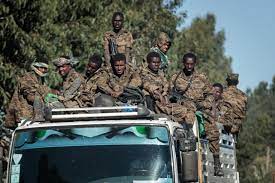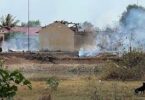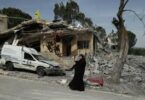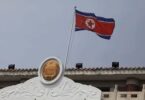ADDIS ABABA (AFP): Eritrean troops allied with Ethiopia’s government “committed war crimes and possible crimes against humanity” in Tigray, raping, enslaving and executing civilians for months after the signing of a peace agreement, Amnesty International said Tuesday.
Dubbed the “North Korea” of Africa, Eritrea was sanctioned by the United States in 2021 after sending troops into Tigray in support of Ethiopia’s federal forces, with its soldiers accused of murder, rape and looting during the two-year war.
The deal inked in November 2022 between Ethiopia’s government and Tigrayan rebels called for the withdrawal of foreign forces from the region.
But Eritrea was not a party to the agreement and its troops continue to be present in border areas, according to residents.
Amnesty interviewed 49 people in May and June in the border districts of Mariam Shewito and Kokob Tsibah, corroborating their testimonies with satellite imagery as well as the accounts of social workers, medical experts and government officials.
“Despite the signing of the Cessation of Hostilities Agreement, atrocities against civilians in Tigray continued with Eritrean soldiers subjecting women to horrific abuse including rape, gang rape and sexual enslavement, while civilian men were extrajudicially executed,” said Tigere Chagutah, Amnesty’s East and Southern Africa director.
“The serious violations documented in this report amount to war crimes and possibly crimes against humanity,” the rights watchdog said.
Some women were raped inside an Eritrean military camp while others were attacked and kept prisoner in their own homes.
A single mother of three told Amnesty she was repeatedly raped for three months and held in a military camp with 14 other women.
“They kept taking turns raping me,” she said, adding that the soldiers also deprived their victims of food and water.
Another woman, aged 37, said she was beaten and raped for nearly three months by soldiers inside her own home.
“They told me, ‘Whether you shout or not, no one is going to come and rescue you.’ And then they raped me.”
Amnesty also documented the execution of 24 civilians, including one woman, between November 2022 and January 2023, citing interviews with survivors, eyewitnesses, victims’ families and local officials.
The Eritrean and Ethiopian authorities did not respond to Amnesty’s preliminary findings, the rights group said, urging both governments to investigate the allegations.
Amnesty called on the UN’s Human Rights Council to renew the mandate of the International Commission of Human Rights Experts on Ethiopia next week.
In its first report published last September the commission said it had found evidence of widespread violations by all sides and accused Ethiopia and Eritrea of possible war crimes and crimes against humanity.
Amnesty also urged the African Union’s rights commission to “rescind its decision” to scrap an investigation into atrocities in Tigray without publishing a report on its findings or recommendations.
Ethiopia has repeatedly rejected international efforts to investigate abuses connected with the war in Tigray and warned that any probes could undermine the progress of the AU-brokered peace agreement.
During a rare press conference in Kenya earlier this year, Eritrean President Isaias Afwerki dismissed accusations of rights abuses by Eritrean troops in Tigray as “fantasy.”
Despite the peace deal, media access to Tigray remains restricted and it is impossible to independently verify the situation on the ground.







